By YASH GHAI
Kenyans over 18 years will on Tuesday have the opportunity to cast their vote for the election of the President. It is probably the most important decision they will make until the next election, five years from now — more even than the bribery they will be offered for the vote.
In order to understand the significance of the vote, we have to remind ourselves of the nature and importance of the Constitution. Kenyans are rightly very proud of their Constitution and its objectives and values.
They represent the sovereignty of Kenya, which they must guard even as they go to vote — for elections are no less than the delegation of most powers of the state to the President. It would be a great tragedy if the powers were given to the candidate who has little respect for the values and procedures of the Constitution.
Then all the struggles and sacrifices of Kenyans to secure this Constitution would have been wasted — and in this way we will also have betrayed those who sacrificed most.
VALUES OF THE CONSTITUTION
By now, most Kenyans understand these values — after all these are the values they demanded. We must vote for that candidate who shows the greatest respect for these values, for, once elected, it is not easy to remove the President, and the harm that the president can do the people and the state is enormous harm.
Briefly, constitutional values and goals include national unity, respect for diversity, human rights, respect for all citizens, equality, social and economic rights, democracy and devolution, people’ participation in affairs of the state, and respect for the Constitution and the law. It is because the achievement of these objectives depends on the government that presidential elections are so important, for the president runs the government and has a big impact also on the economy and people’s lives.
However, to a very significant extent, the achievement of these objectives depends on another objective: Good governance, integrity, transparency, accountability and the separation of state powers (integrity aiming at the elimination of corruption, perhaps the most critical problem facing Kenya).
The exercise of presidential power can be questioned and challenged. Some of the checks or brakes on presidential powers are the jurisdiction of an independent judiciary to judge the validity of presidential action or decision, requirements of people’s participation, a number of independent commissions to “protect the sovereignty of the people, secure the observance by all state organs of democratic values and principle, and promote constitutionalism”, protected powers and functions of the counties, and considerable autonomy of the police.
The national parliament can also question the policies or acts of the executive and has the power to impeach the president (though with a majority of parliamentary support, those powers are hard to invoke). The practice of imperial presidency is still so strong that the president has been able to get away with serious violations of the Constitution or laws.
HOW ARE WE TO DECIDE BETWEEN PRESIDENTIAL CANDIDATES?
To decide on the presidency, it is necessary to analyze the functions and powers of the president. Perhaps the most important is the president must promote and enhance the unity of the nation; promote respect for diversity of Kenyans; ensure the protection of human rights and fundamental freedom and the rule of law; uphold and safeguard the sovereignty of Kenya; and in “respect, uphold and safeguard this Constitution”. The way in which presidential powers are exercised is often apparent from the situation of the economy, accessibility of young people to education, the state of health of the people and availability of medical treatment, and disparities of incomes and opportunities among people of different communities and counties. Another test is whether the president goes beyond his or her powers—for example, the powers of the president are very limited visa-a-vis the police and security forces, and none over the judiciary. A good test would be how far the president has unified the country by the equal treatment of all communities and areas.
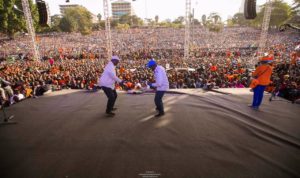
NASA politicians Mudavadi and Kalonzo boogie during the final rally at Uhuru Park
How do we apply these tests to the candidates, only one of whom has served as president? And there seems to be only one other candidate with significant experience in politics and public life? Our task is made easier that only two candidates are treated as having a chance of being elected — Uhuru Kenyatta and Raila Odinga, both of whom have considerable experience of public affairs, policy making, etc.
At this stage, another test would be how these candidates and their parties have conducted the election campaigns so far — especially as the Constitution sets out in great detail the qualifications and behavior of parties and candidates. Unfortunately, in Kenya, the electoral behavior of most parties has become shameful to the extreme — and sadly provides no choice when it comes to voting.
WHO WILL BECOME DEPUTY PRESIDENT?
An important consideration in voting for president should be the candidate’s running mate, to which little attention has been paid. The Constitution provides for the assumption of the presidency by the deputy in case of the absence or temporary incapacity of the President or whenever the president so decides.
The deputy becomes president automatically if the president is removed by impeachment, ill-health or dies; and exercises a full five-year term if the former president had served less than half the normal presidential term. It is obvious that very serious consideration should be given to the running mate when voting for president.
Little needs to be said about Uhuru’s choice of his running mate, William Ruto. He too seems to have little understanding of the Constitution or does not care about it. He has made a huge fortune in a relatively short span of time, mostly, it is suspected, in devious ways, like land grabbing, and, in a short time, he has built himself a huge fortune. Few Kenyans would be comfortable with the idea of his presidency. A one-time admirer of Raila (as was Uhuru), he has changed his position fundamentally — no doubt for convenience.
Raila has chosen his running mate more sensibly, Kalonzo. At least he does not carry the recklessness of Ruto. Despite being in government for a long time, Kalonzo does not have a known record of corruption that would even touch the reputation of Ruto for graft. He seems more thoughtful and reflectful and, during his time in opposition, he has shown some consistency.
Kenyans would do well to vote for Raila if only to spare us from Ruto.
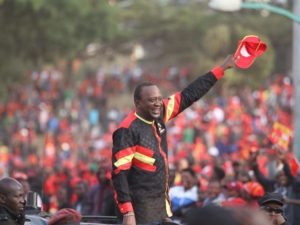
President Uhuru in his last stretch of campaigns at Uhuru Park
KENYATTA’S RECORD
Since Uhuru is the only candidate who has been President, I intend to judge his record largely by reference to his conduct over the four-and-a-half years. He has considerable charm and seems caring for others (as I learnt during Bomas).
Though I believe that his concern is serious, he does not seem to be able to translate it into concrete policies, as was obvious when he was a Cabinet minister. But the long period of imperial presidential rule which he tasted at close quarters for years, has given him the notion that presidents can do what they like — a kind of arrogance otherwise so out of his character.
As a general point, no candidate, who does not fully subscribe to constitutional values, in theory, and practice, should be supported for the presidency. Of these values, the two most important qualities needed for the position are integrity and nationalism/patriotism. Ever since Independence, beginning with and incited by Jomo Kenyatta, ethnicity has been critical in politics and business, fostered by “leaders”, deliberately creating a sense of hostility among “tribes”, and not infrequently violence.
Corruption was the pre-occupation of those who captured the state, and used its resources and access to foreign loans — and its coercive power — to enrich themselves. The scale of corruption is monumental. Uhuru has shown little concern with this state of affairs. The state services employ a proportionally high degree of the Kikuyu, as are profitable businesses requiring state patronage (the Kenyatta enterprises also benefit from the favors of the state).
The result is that Uhuru becomes essentially an agent of these groups, a presidential candidate at their dictates — no longer an independent president, who swore an oath to ensure social and economic rights of all Kenyans. The disparities between the rich and the poor have increased at an alarming rate; class distinctions are rapidly overtaking ethnic or religious differences. More and more people live in appalling poverty.
A second term of Uhuru will reinforce the notion that Kenya belongs to the Kikuyu, further damaging the prospects of a common citizenship and national unity. These two factors should disqualify him from public support. But there are many other examples of his disregard of the Constitution, which I have documented in several articles in the Star ever since he became president. For example, he early removed the autonomy of the police by amending the law; some of the independence was restored by a ruling of the court.
Likewise, he tried to bring the judiciary under his control, by bringing his people into the Judicial Service Commission and to control the appointment of judges, including the Chief Justice. The public and the judiciary fought back; he had to give in. He has very grudgingly “allowed” the establishment of devolution but has imposed various restrictions on the counties, and left behind a large force, responsible to the central government.
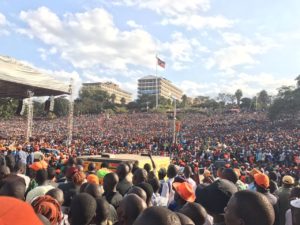
Huge crowd of NASA supporters at Uhuru Park where Raila held his last rally.
From his numerous statements, especially those about his authority, one gets the impression that he has not read the Constitution, or at least not understood the scope of his authority. His economic policies, involving huge loans, have been criticized, as have the inadequate accounting of foreign and local loans. And he seems to have taken over a year for his political campaign, paying little attention to his duties as president and head of government.
VOTE FOR RAILA ODINGA?
There are many arguments in support of Raila. Unlike Uhuru, he is a mature politician. The election of a non-Kikuyu will augur the path to a feeling of nationhood. Again, unlike Uhuru, he has fought against dictatorship and paid a heavy price for it, including a long period of imprisonment.
Of all the Kenyan politicians I have met, he has reflected more than any one on constitutions as well as the system of government — and decided in favor of parliamentary (a system which might have spared us the violence, intrigues, bribes, etc). I could always count on Raila’s support when Moi and Kibaki opposed the Bomas draft; Raila should get great credit for the wonderful Constitution that we now have.
He has a sophisticated understanding of nationhood and fairness. He seems to be able to make his own decision, which Uhuru seems incapable of. It seems unlikely that he would take orders from a cabal. He is an enthusiastic supporter of devolution and would like to see more functions and funds allocated to the counties — a position that has wide support in the country. He will need to be a bit tougher with his staff than in the past.
His victory would be widely seen, locally and in other countries, as a fitting reward for his long political service as well as being done out of proper rewards in some previous elections — a defeat that he took remarkably He understands the nature of politics in a way that eludes Uhuru. And he does seem to have read the Constitution and is committed to making it work.
Kenyans desperately need a president who is committed to the Constitution, as was Mandela, which brought about a renaissance in South Africa. Neither Kibaki nor Uhuru liked the new Constitution; it is the time we had a champion of it for the future to which millions of Kenyans committed themselves through the Constitution.
I do not intend to suggest that Raila does not have any weaknesses. When he was Prime Minister in the coalition government, there were a number of false moves (more the responsibility of his senior staff) that alienated the support of civil society and other supporters. If he becomes president, he would have to take control and seriously guard against corrupt, opportunistic individuals and tribal chauvinists from defining and guiding his leadership. He should also not allow himself to be mesmerized by power.
Even with his known frailties, he towers way above Uhuru. It may also be that he has learnt from earlier experience. He has now very competent, honest and reliable advisers, including Zein Abubakar, David Ndii, and Salim Lone — known to many for their intelligence, integrity, commitment to a fair regime and social justice, and the Constitution as a whole.
Kenyans would lose a great opportunity if they did not vote for Raila Odinga.
Writer is an activist and constitutional advocate. Views his own.
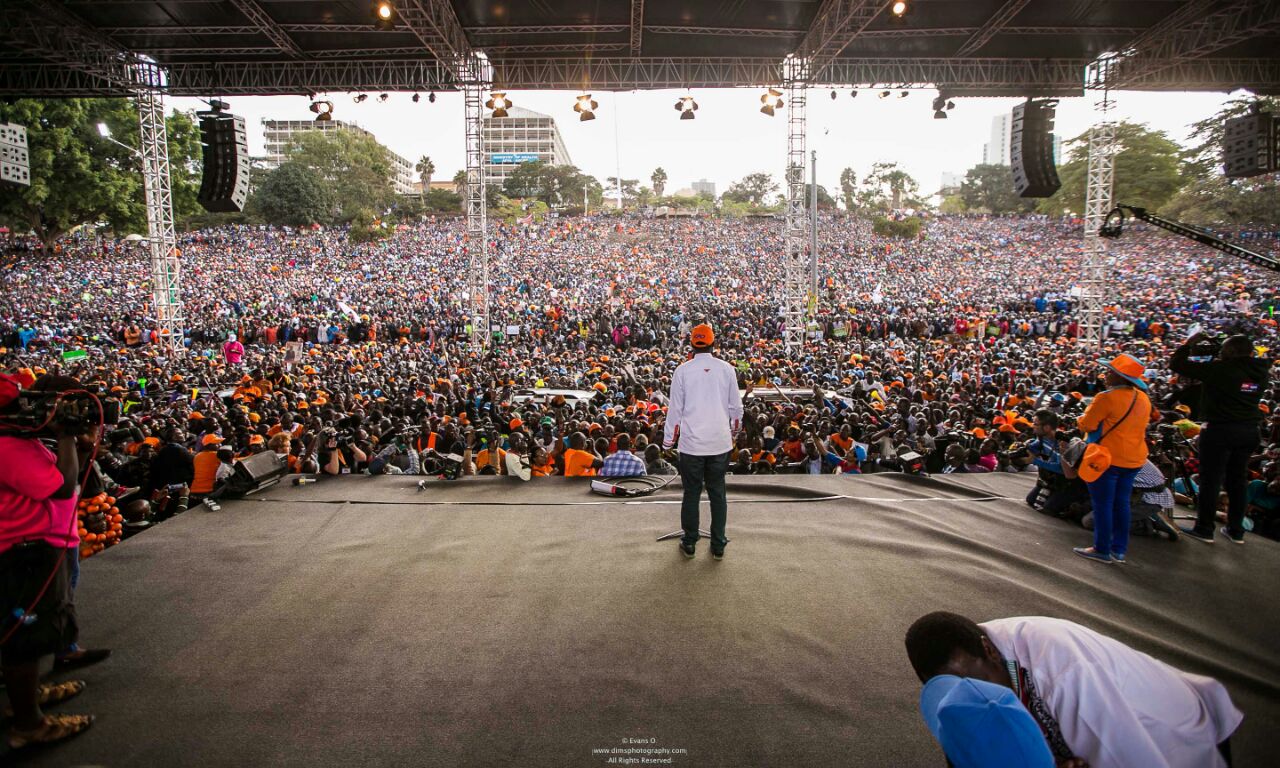
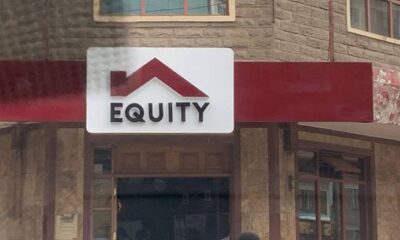
 Business4 days ago
Business4 days ago
 News1 week ago
News1 week ago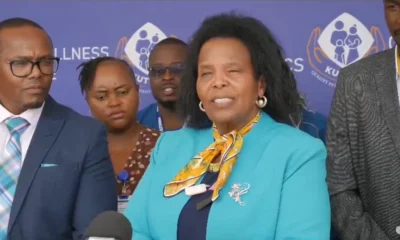
 News5 days ago
News5 days ago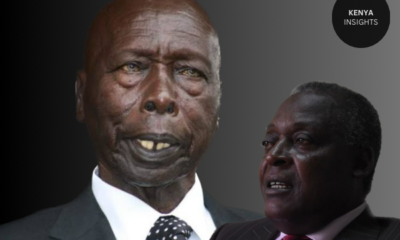
 Investigations2 weeks ago
Investigations2 weeks ago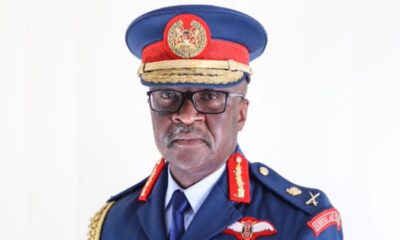
 News2 days ago
News2 days ago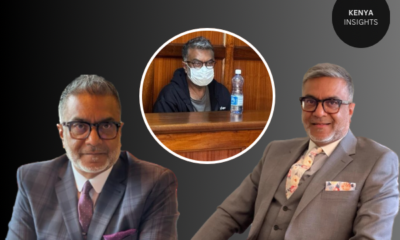
 Investigations1 week ago
Investigations1 week ago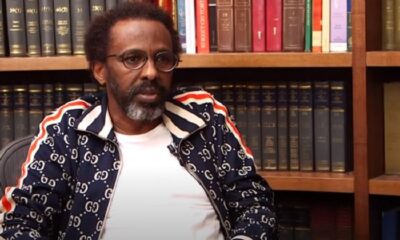
 News1 week ago
News1 week ago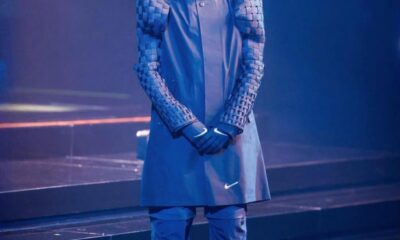
 News1 week ago
News1 week ago


